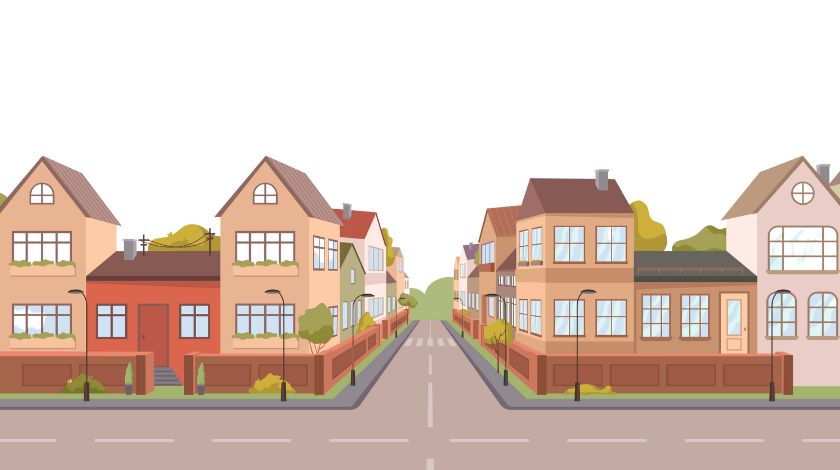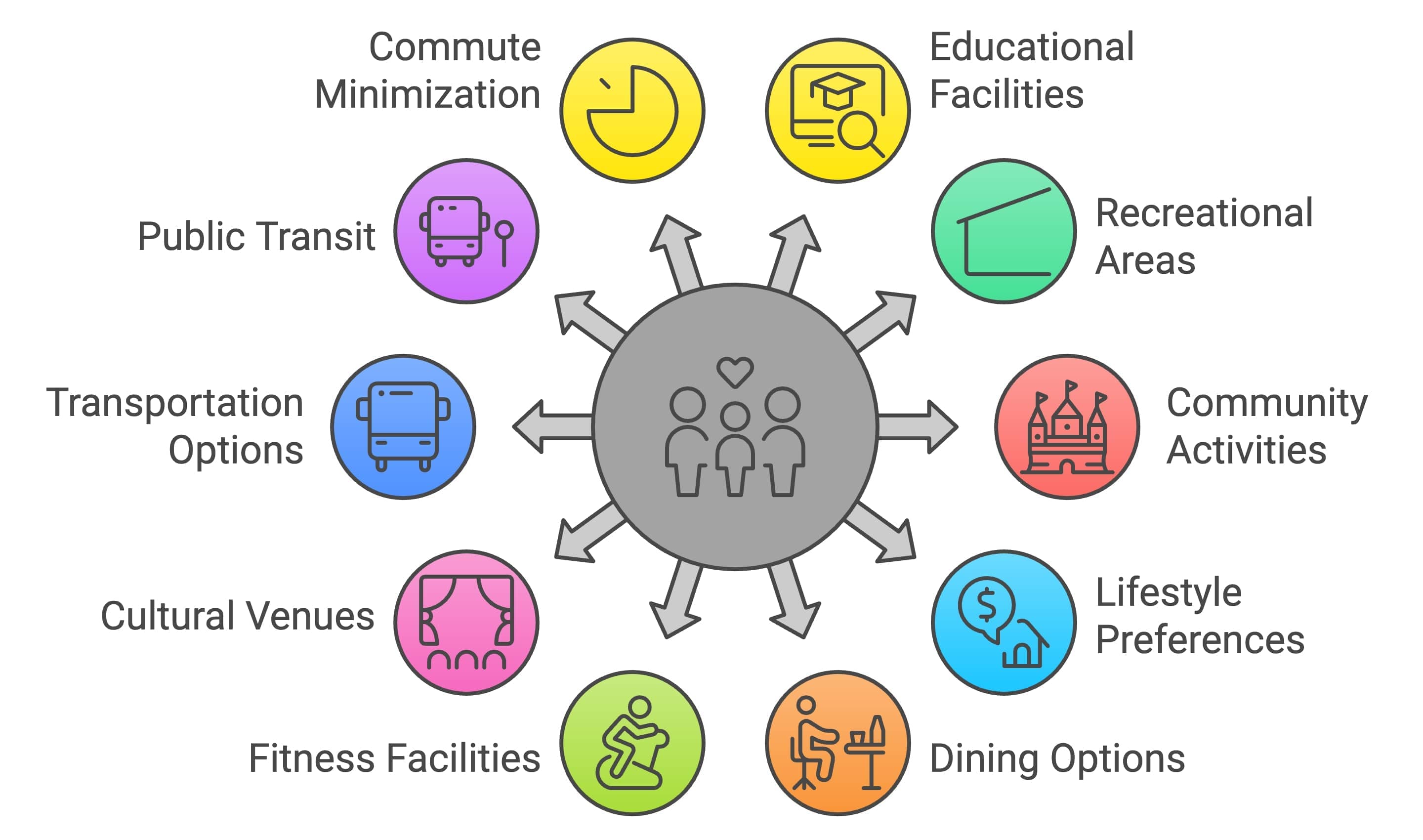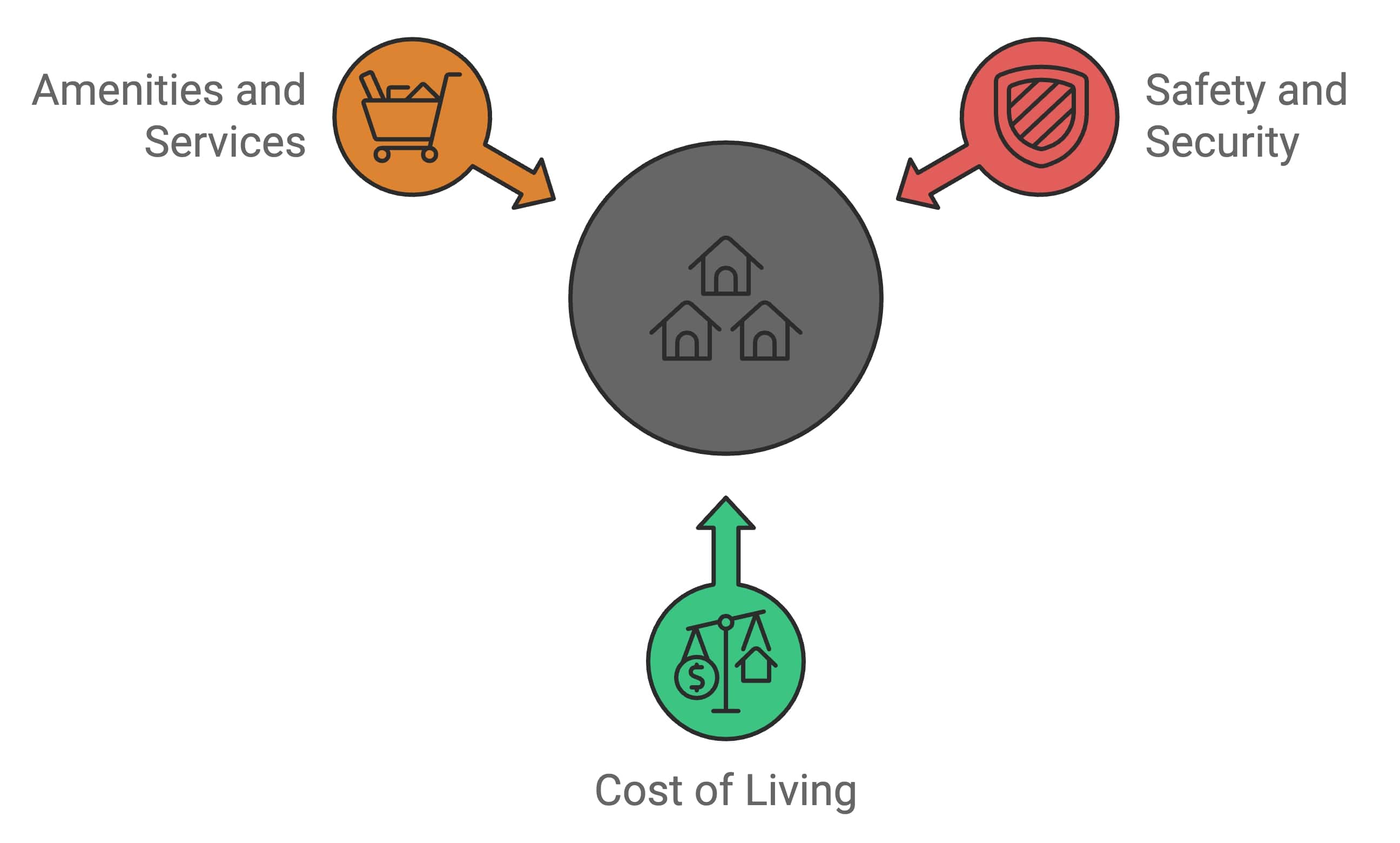How to Choose the Right Neighborhood Before Relocating

In this blog, we'll explore the crucial role that selecting the right neighborhood plays when planning a relocation. It's not just about moving your belongings; it’s about finding a community where you and your family can thrive.
The choice of neighborhood affects various aspects of life, from social interactions and education opportunities for your children, to your daily commute and personal well-being. Opting for a neighborhood that fits well with your lifestyle can enhance your quality of life, offering easy access to the amenities that are most important to you, whether that includes quiet, green spaces, a vibrant cultural scene, or top-notch educational institutions.
Therefore, understanding how to choose the right neighborhood is essential for ensuring your new environment fosters happiness and supports your family’s needs in the best possible way.
Understanding Your Needs

Identify the critical needs and desires for you and your family in a new neighborhood. This section guides you through evaluating family dynamics, lifestyle preferences, and transportation needs.
1. Family Considerations
- Importance of access to quality educational facilities for children's development.
- Availability of parks and recreational areas for health and leisure.
- Presence of family-oriented activities and community centers.
Also read: Find Right Neighborhood When Moving With Teenagers
2. Lifestyle Preferences
- Proximity to restaurants, bars, and cultural venues for dining and entertainment.
- Availability of fitness centers and public sports facilities for active lifestyles.
- Neighborhood atmosphere that matches personal hobbies and interests.
3. Commuting and Transportation
- Access to robust transportation options, including public transit and roads.
- Proximity to workplaces to minimize commute times.
- Overall connectivity of the area for easy access to city-wide amenities.
Researching Potential Neighborhoods
Utilize various methods to gather detailed information about potential neighborhoods, ensuring a well-rounded understanding of each area.
1. Online Resources
- Use online platforms and websites for crime rates, school ratings, and property values.
- Explore local government portals for additional neighborhood data.
2. Visiting in Person
- Visit neighborhoods at different times and days to get a realistic feel of the area.
- Observe the atmosphere, noise levels, and general activity to gauge suitability.
3. Talking to Residents
- Engage with current residents to get honest feedback on the neighborhood.
- Inquire about community dynamics, pros, and cons of the area.
Key Factors to Consider

Delve deeper into specific factors that significantly impact the suitability of a neighborhood, ensuring it meets all personal and family needs.
1. Safety and Security
- Research neighborhood crime statistics and local safety initiatives.
- Consider the general sense of community and security in the area.
2. Cost of Living
- Compare housing costs, taxes, and daily expenses across different neighborhoods.
- Assess the financial impact relative to personal and family budgets.
3. Amenities and Services
- Evaluate the proximity to essential services like hospitals and grocery stores.
- Consider the availability of local amenities that support your lifestyle.
Making an Informed Decision
With comprehensive information and insights, make an informed decision on the best neighborhood that aligns with all personal criteria.
1. Future Growth and Development
- Consider upcoming neighborhood developments that might affect its appeal.
- Evaluate the potential for future growth, which could enhance property value and living conditions.
2. Final Checklist
- Create a checklist of all personal criteria to methodically evaluate each neighborhood.
- Ensure that the chosen neighborhood meets all key requirements before finalizing the decision.
Final Thoughts: Settling into Your Perfect Neighborhood
Selecting the right neighborhood is a cornerstone of ensuring a successful and satisfying relocation. The environment you choose will profoundly influence your daily lifestyle, access to essential amenities, social interactions, and overall contentment. This decision, therefore, warrants careful consideration and thorough research.
We encourage you to take your time to deeply engage with each potential neighborhood. Utilize the diverse resources mentioned—online tools, direct visits, and conversations with residents—to gather a comprehensive understanding of each area. These steps are crucial in making an informed choice that aligns with your personal needs and aspirations for your new home.
Remember, the effort you invest now in choosing the right neighborhood can lead to years of happiness and a fulfilling life in a community that feels truly like home. Take this journey with patience and diligence, and you'll find a place where you and your family can thrive.